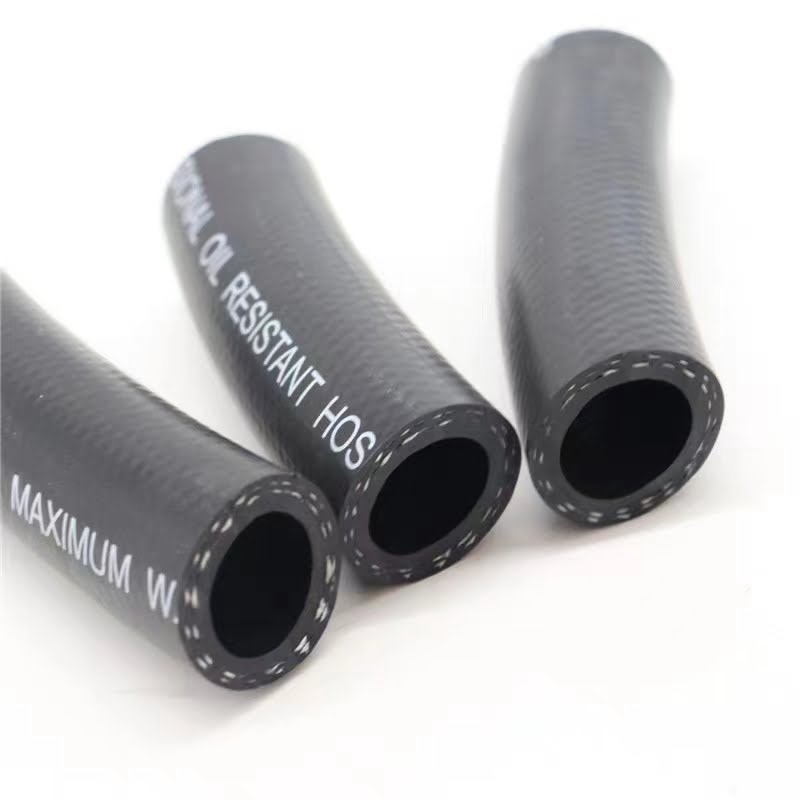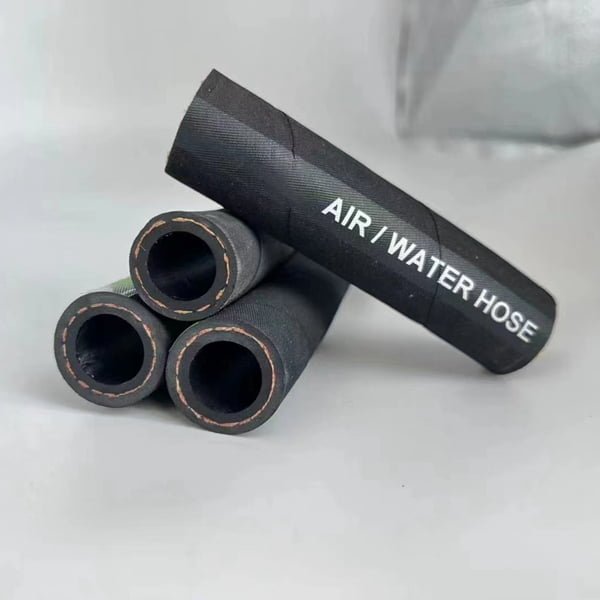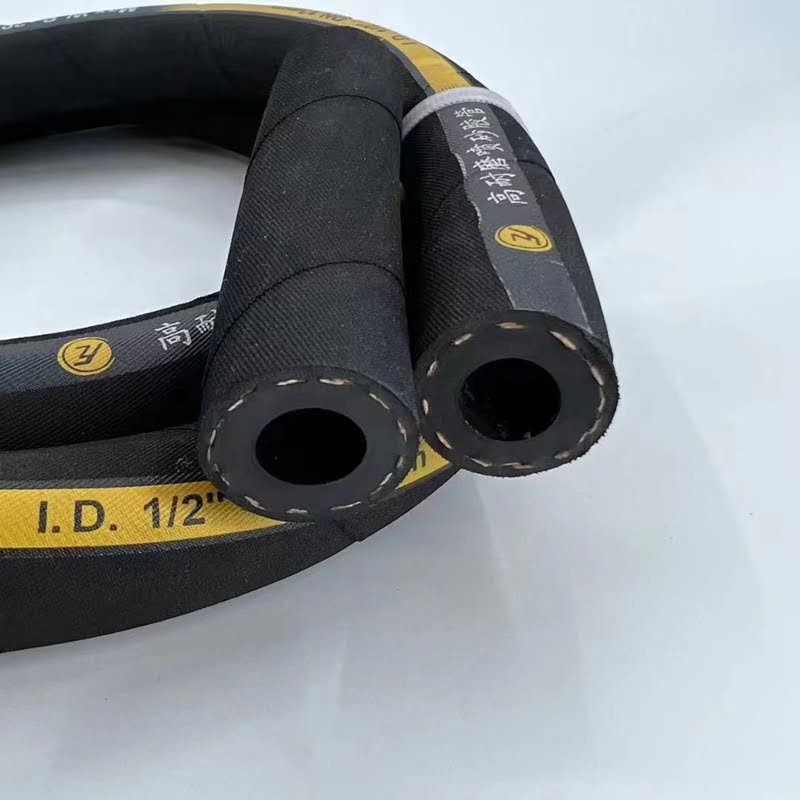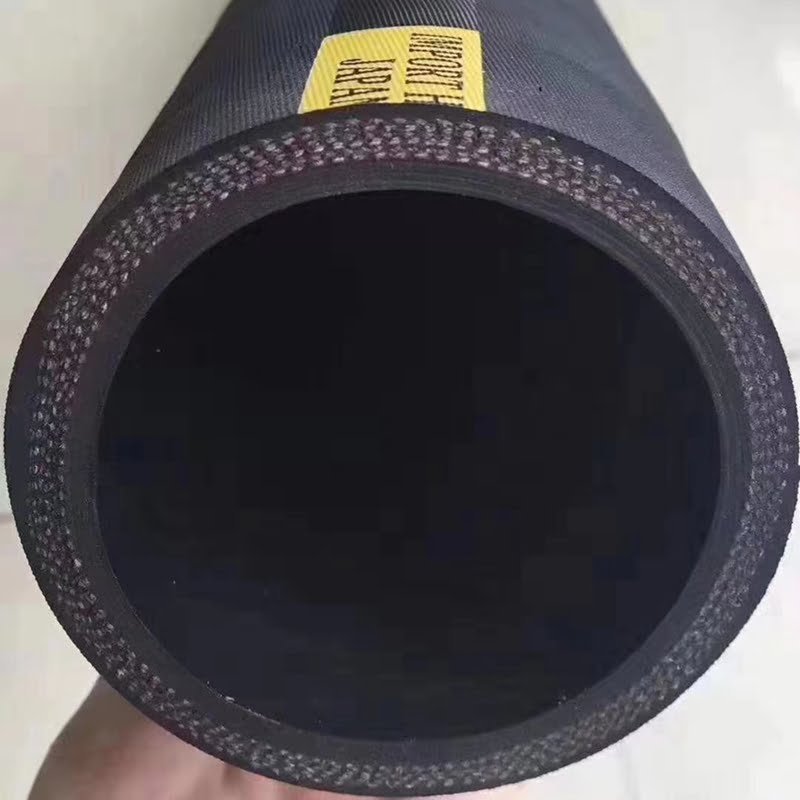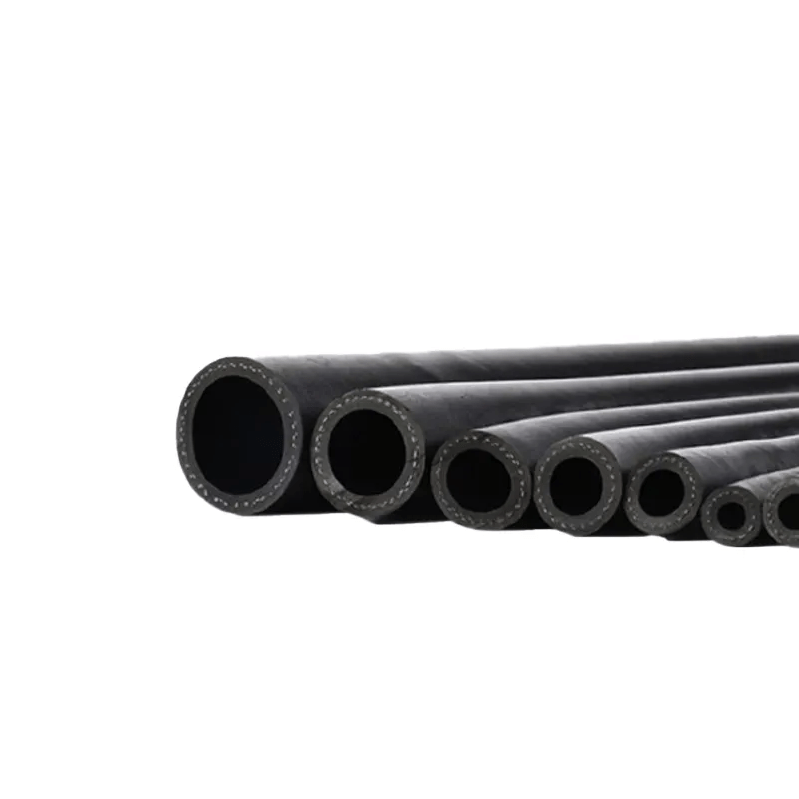Low-pressure Rubber hose
The low-pressure rubber hose transports saturated steam or superheated water below 170°C. The working pressure is 0.35Mpa for steam and 0.8Mpa for hot water.
– Purpose of steam hose: To transport saturated steam or superheated water at 165℃~220℃. It is suitable for use as flexible pipelines in hot press equipment such as steam cleaners, steam hammers, flat vulcanize-rs, and injection molding machines.
Features: The inner and outer rubber layers of the hose are made of synthetic rubber with excellent heat resistance. The tube body is soft, bulky, flexible, and has high heat resistance.
The Low-pressure rubber hose classification:
– Cloth-covered steam hose
-PTFE tube
-Silicone tube
– Cloth-covered steam hose
Use: Suitable for transporting saturated steam or superheated water not higher than 150°C. Characteristics: The rubber layer has good heat resistance, and the pressure of the hose is not less than 10 times the working pressure.
-Use of PTFE pipe: widely used in the chemical industry, machinery, electronics, electrical appliances, military industry, pipelines, petroleum, textile machinery, electrical insulation, environmental protection, and other economic fields.
Features: Fine appearance structure, no mechanical impurities, high strength, excellent chemical stability, corrosion resistance, sealing, self-lubricating, and non-sticky, electrical insulation capabilities, can be used for a long time at -60~250℃, and has reliable and excellent resistance to Corrosive, used to transport highly corrosive media at high temperatures
Any length within the diameter range of 4-50MM, cold-resistant, high-temperature resistant, non-toxic, and tasteless, in line with food hygiene, plus a fiberglass silicone tube, which has stronger moisture-proof and pressure-resistant properties. It can withstand a temperature of 300°C. The main specifications are the inner diameter of 9.5 and 12.7, the wall thickness of 3.5, and pressure ≤ 0.3MPa. It is used for peristaltic pump ports to roll the pump tube through the pump head to generate vacuum and drive liquid flow.
| Product Name | ID(mm) | Performance and use | Remark |
|---|---|---|---|
| Steam hose | 6-76 | Transport saturated steam or superheated water below 170℃, working pressure is 0.35Mpa for steam and 0.8Mpa for hot water. | |
| Oil transmission and suction hose | 6-152 | Suction and delivery of gasoline, engine oil, lubricating oil and other mineral oils at normal temperature. The working pressure is 0.5-1.2Mpa. | |
| Food suction hose | 16-152 | Attracts milk, alcohol, edible oils and liquid beverages. Working pressure is 0.5-0.8Mpa. | |
| Acid and alkali conveying hose | 19-203 | Transport dilute acid and alkali solutions at room temperature. Working pressure is 0.5-0.7Mpa. | When transporting concentrated acid, butyl rubber can be used as the inner rubber layer, and glass fiber can be used as the cloth layer. |
| Wear-resistant sandblasting hose | 19-76 | Hose for air pressure sandblasting, working pressure is 0.6Mpa。 | Cement tank truck pipes can also be produced according to this method |
| Water tank bend pipe | 25-102 | Locomotive water tank for water delivery | |
| Drilling hose | 51-102 | It is pressure-resistant, wear-resistant, and oil-resistant. It is used as a flexible connecting pipe between the drilling machine's hose faucet and the riser flange. Working pressure is 10-30pa. | There are metal connectors on both ends |
| Nylon wire wound oxygen blowing hose | 51-127 | Flexible connecting pipes are used for pure oxygen top-blown converters, and the working pressure is 1.5Mpa. | End-to-end vulcanized metal flange with asbestos protective layer on the outside. |
| Mud discharge (suction) hose | 196-900 | The dredger is used to discharge (suck) sediment, and the working pressure is 0.4-0.5Mpa. | Can be equipped with flange joint according to design requirements |
| Hole making hose | 25,32,40 | It is used for making holes in bridges, highways and other engineering constructions, and the tensile strength is 1.50-2.30Kg/root. | The outer layer of glue has good tearing properties |

